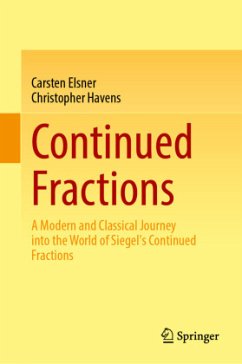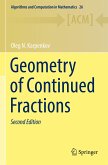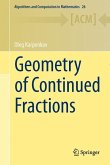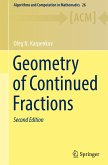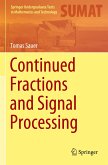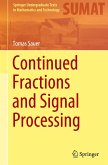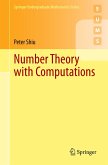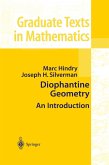This monograph originates from a study of the continued fraction [1, 2, 3, ...], which we call the Zopf number. Its origins date back to 1929 when Siegel introduced it as a ratio of Bessel functions. Continued fractions is most often styled classically, and much of the content is formulated through Diophantine analysis. However, in this book aspects of the theory of computation can be used interchangeably through matrices and transducers.
We give an introduction to the computational theory of continued fractions, viewed through the lens of matrices and transducers. Then we move to quadratic convergents in terms of the classical rational convergents, which is one of the main topics of the book. With this at hand, the Zopf number and its quadratic convergents are explored through Diophantine analysis. This is followed by the generalized Zopf numbers which can be written compactly in terms of irregular continued fractions, for which many can be shown to have representations by Hurwitz continued fractions. For these Hurwitzian Zopf numbers, we provide an algorithm for converting from irregular to regular continued fractions by using a special type of "interrupted" LR-sequences. Finally, applications to these Hurwitzian Zopf numbers are given, including a refinement of the irrationality measure by iterated logarithms.
Written in an accessible style, the material will be of interest to students and researchers in number theory and approximation theory.
We give an introduction to the computational theory of continued fractions, viewed through the lens of matrices and transducers. Then we move to quadratic convergents in terms of the classical rational convergents, which is one of the main topics of the book. With this at hand, the Zopf number and its quadratic convergents are explored through Diophantine analysis. This is followed by the generalized Zopf numbers which can be written compactly in terms of irregular continued fractions, for which many can be shown to have representations by Hurwitz continued fractions. For these Hurwitzian Zopf numbers, we provide an algorithm for converting from irregular to regular continued fractions by using a special type of "interrupted" LR-sequences. Finally, applications to these Hurwitzian Zopf numbers are given, including a refinement of the irrationality measure by iterated logarithms.
Written in an accessible style, the material will be of interest to students and researchers in number theory and approximation theory.

